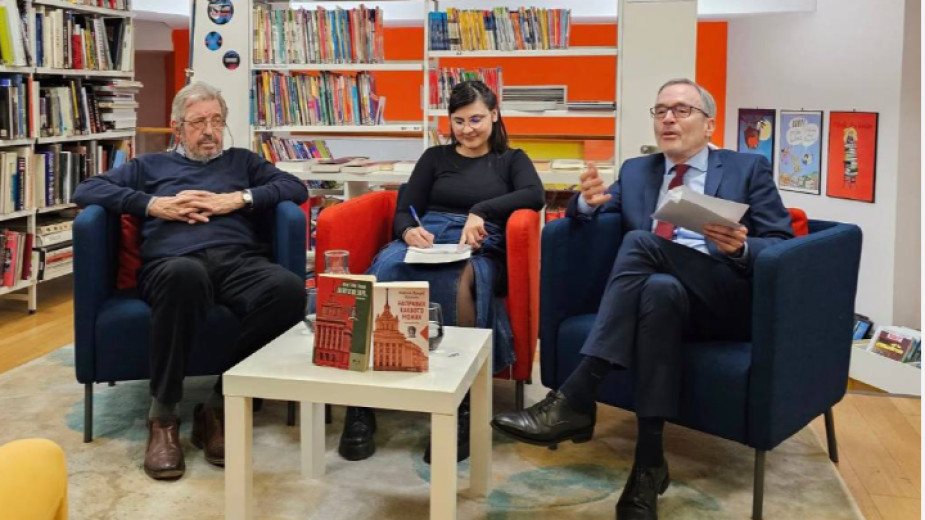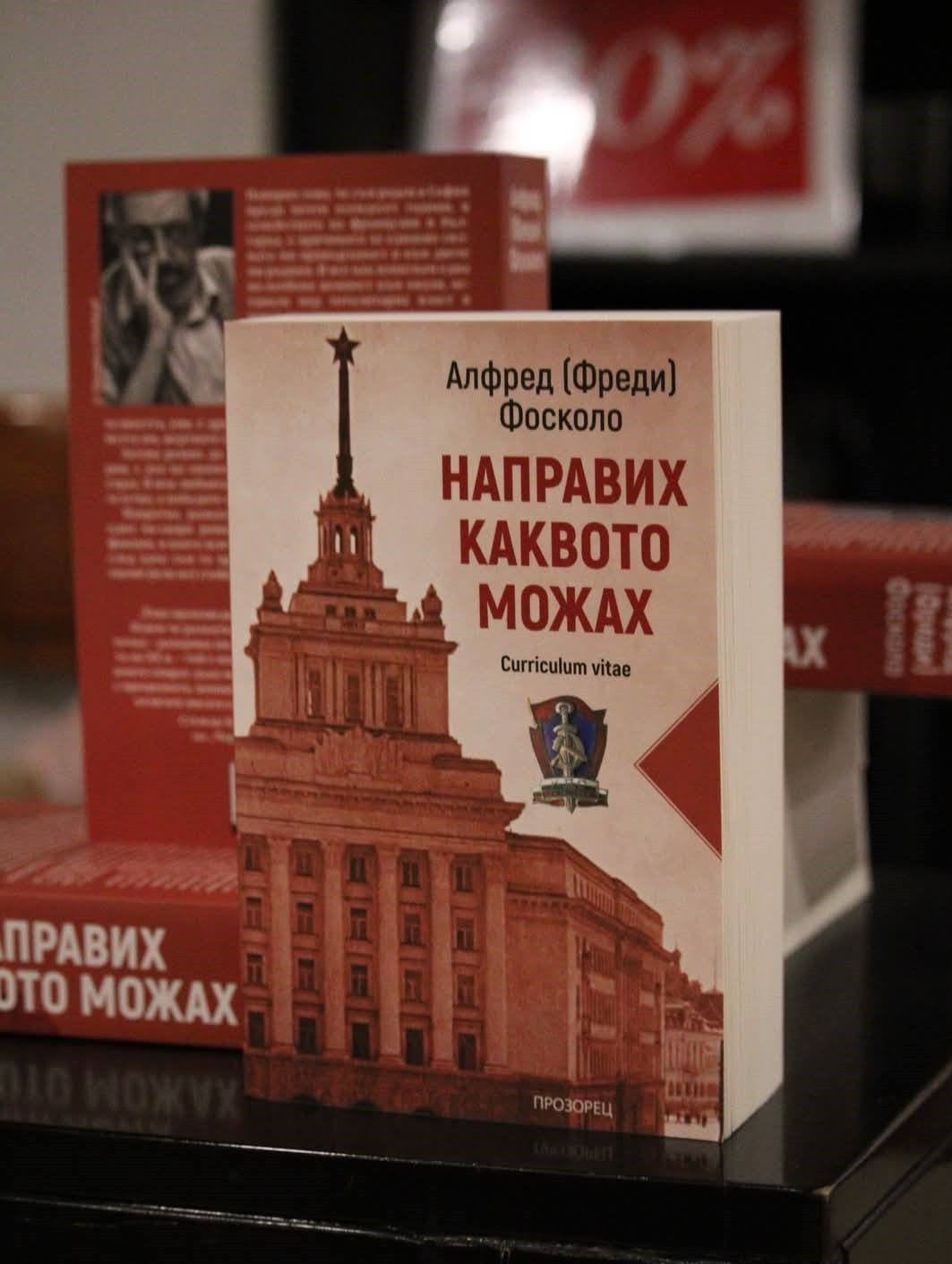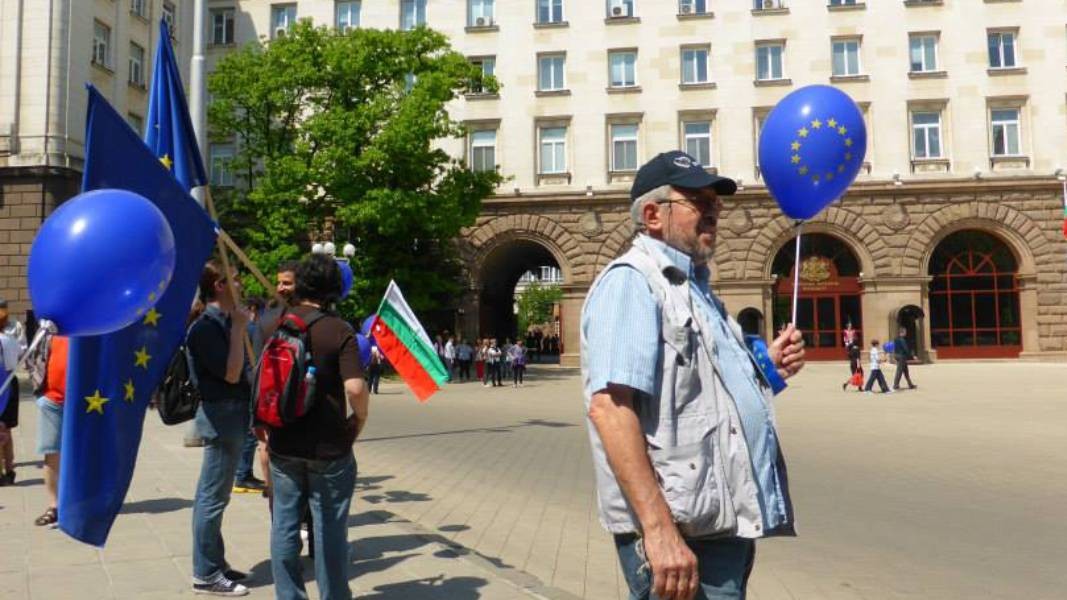 2
2
Life between Bulgaria and France... A little more than 80 years ago, in 1942, a boy was born in Sofia - the love child of a Bulgarian woman and a Frenchman. His parents met in France, but they decided to start a life in Bulgaria, so the couple settled in the country in 1939.
The Second World War found them here. His father had set up a French language school called Sunflower, where children between the ages of 4 and 14 learned the language through play. By the time it closed in 1948, some 700 children had attended the school.
"I suppose I owe to my origins the equally strong affection that runs through my veins for my two homelands. Nevertheless, I have a soft spot for my poor and long-suffering Bulgaria," writes our compatriot Alfred Foscolo in the preface to his autobiographical novel I Did What I Could (J'ai fait ce que j'ai pu).

Although the plot of the book is worthy of a film adaptation, the author admits that the story is the result of Bulgaria's political path:
"If things had turned out as I had hoped - if Bulgaria had not been led by the same politicians of the past, or by their offspring, who are doing their best to detach Bulgaria from its European path, I might not have sat down to write this book. Because we were normal boys and girls living in an abnormal world, which provoked me to try to help change things".
In 1966, Alfred Foscolo wrote a proclamation addressed to the communist government of Bulgaria. Today, his demands would provoke little reaction from either the government or the citizens, for they are a call for basic human rights that are taken for granted in our time.

"My proclamation did not call for a rebellion, but it was addressed to those in power, who had to come to their senses and take the path of democracy. I know it sounds naive, but today we have all these things - a parliamentary republic, freedom of movement, freedom of the press and freedom of speech. Although we have all this, it is not guaranteed that we will have it forever if we are not vigilant," he said.
Since 1957, Alfred Foscolo has lived between France and Bulgaria, coming here every summer. The contacts and conversations he had in the 1960s led him to try to make a difference, to contribute in some way to the yearning for change that was ripe among young Bulgarians at the time. His activities, especially the betrayal of one of his friends who revealed who had printed the leaflet, attracted the attention of the State Security. The authorities began to track him, and in 1968 the trap was set. They lured him back to Bulgaria under the pretext of helping his future wife, Rayna, leave the country. On the last day of his stay, Alfred was arrested. He was declared a spy and sentenced to 15 years in prison. He was released in the third year of his sentence after diplomatic intervention.

Alfred Foscolo commented succinctly on what is happening in the world at the moment, describing it as extremely worrying. In such moments, the emergence of various protest movements is not excluded - our interlocutor pointed out, adding that he remembers a Bulgarian protest with the intensity of the yellow vest protests that started in France in 2018, only in Bulgaria it was 31 years ago:

"In 1994, when the street protests swept away the government of Zhan Videnov, this happened as a result of the activation of civil society. However, this success was "confiscated" because the politicians of the time allowed those who had betrayed political power to take over economic power, which later enabled them to worm their way back into political power. The transition in Bulgaria began and remained like the transition in Russia, unlike what happened in the other former communist countries, where the nomenklatura was removed," Alfred Foscolo analyzes our path to democracy.
Photos: Personal archive, institutfrancais.bg
Posted in English by E. Radkova
Bulgaria’s National Assembly rejected President Rumen Radev’s veto on the amendments that expand the powers of the special commercial administrator of Lukoil, reported BNR’s correspondent Maria Fileva. The MPs from the ruling majority, supported by..
President Rumen Radev has vetoed the legislative amendments related to the appointment of a special commercial administrator in the Lukoil refinery in Burgas. The head of state said that the amendments undermine the legal order in..
Convulsions Before Multipolarity — a Time When Illusions Are Sacred and Truth Is Heresy is the title of a new book that will be officially presented in early November in Sofia. It explores the agony of a unipolar world, an era of geopolitical..

+359 2 9336 661
